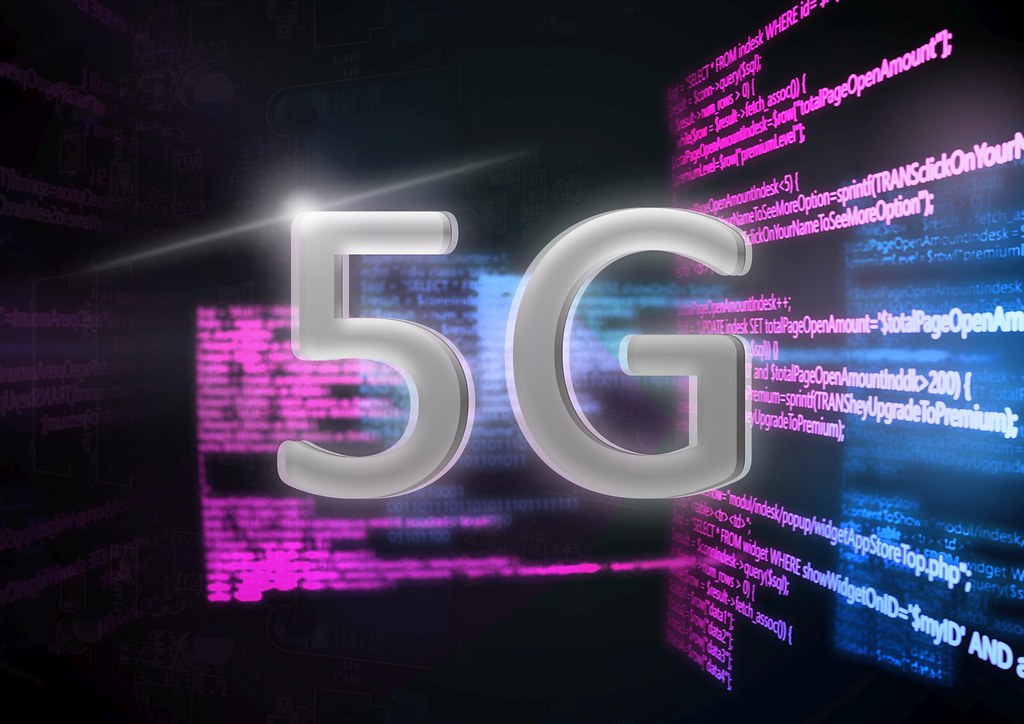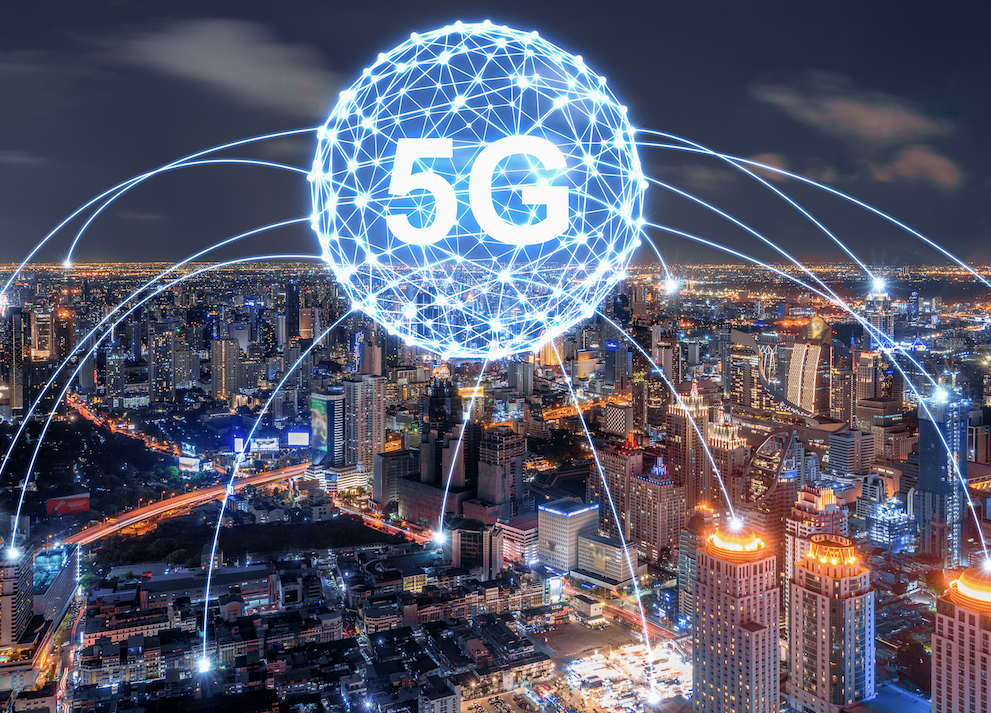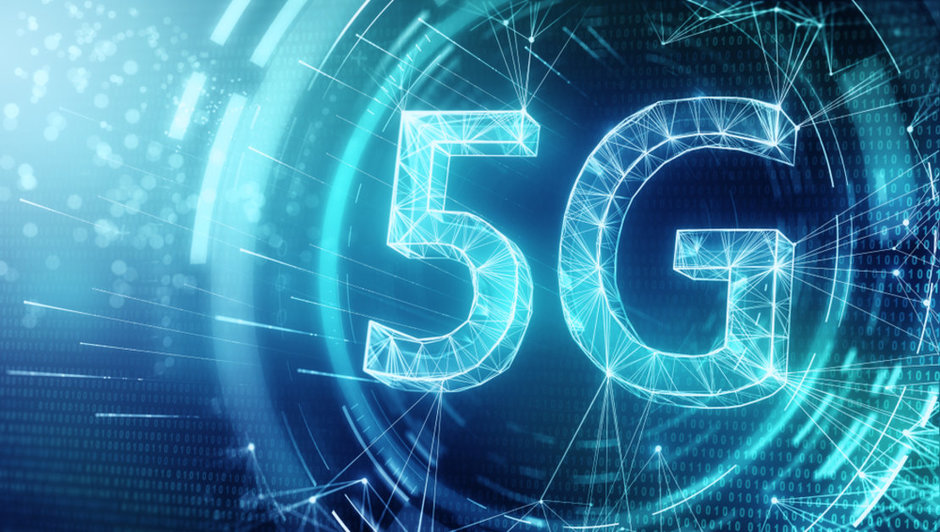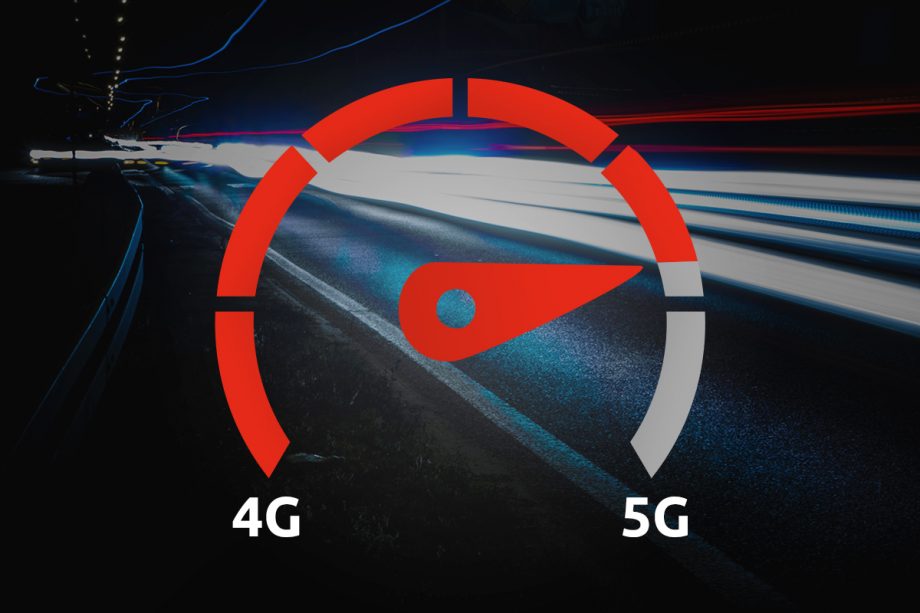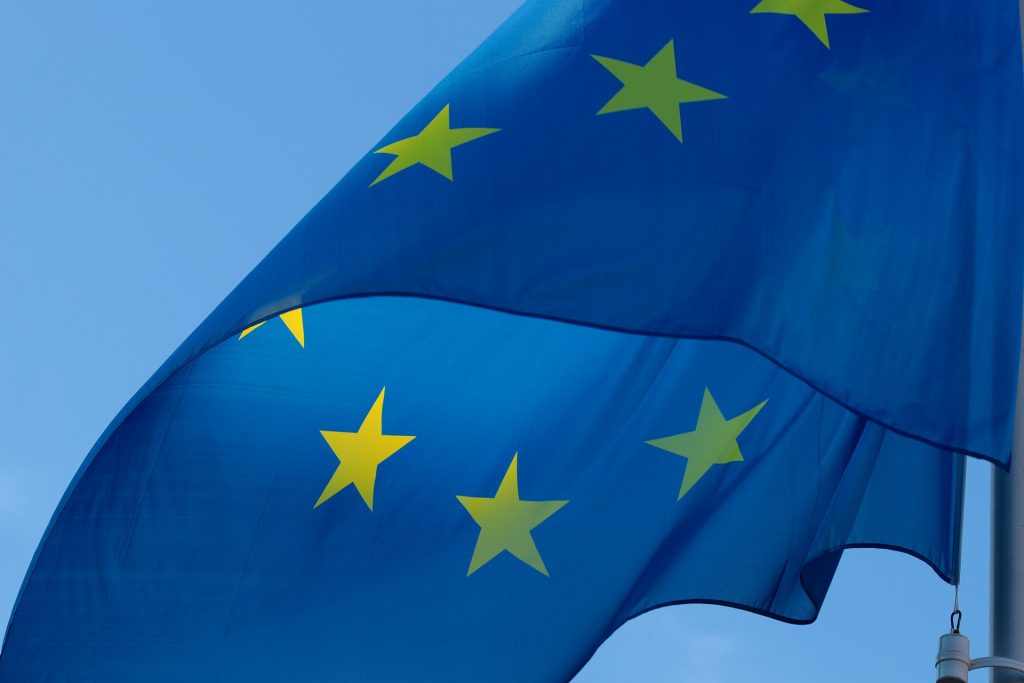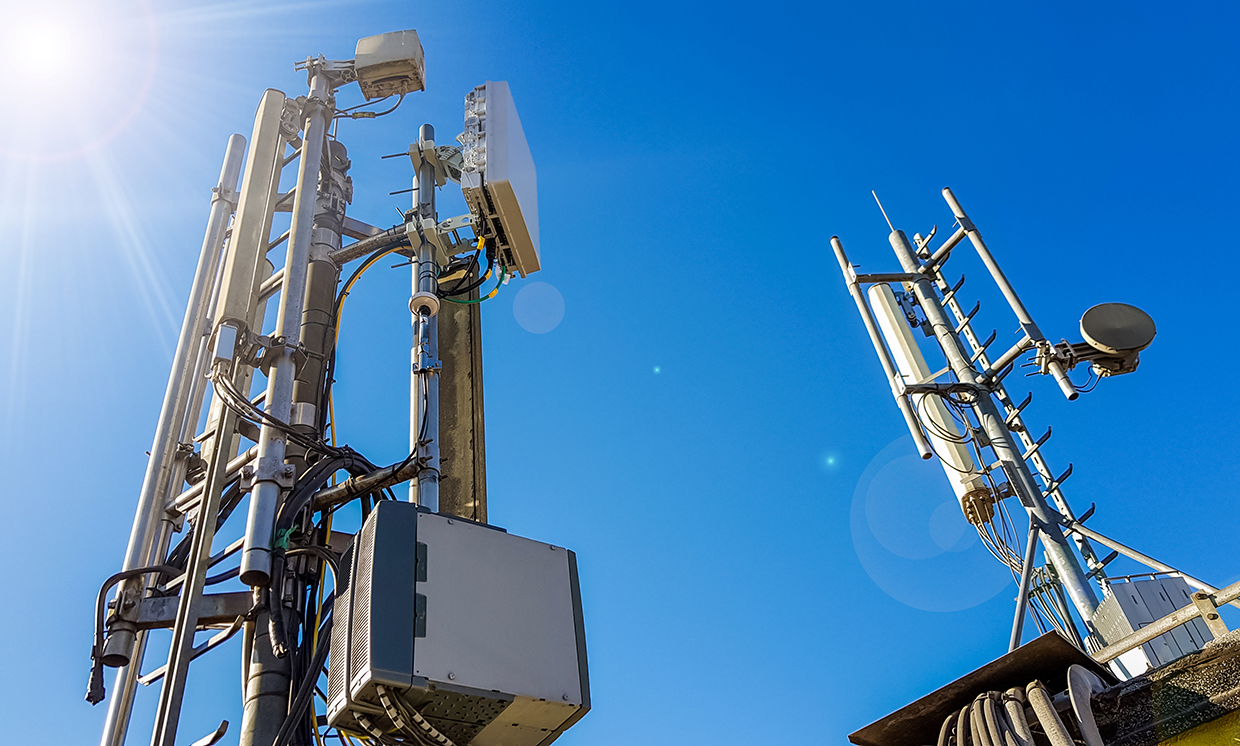Telecoms
Telecoms
Vodafone to launch 5G service in July
Though
not expected in the UK until 2020, if you are a Vodafone customer the long wait
for 5G is very nearly over.
The British
telecoms company has announced that it will turn on its 5G service on July 3 in
seven cities in the UK, becoming the first network to officially announce a
release date.
The cities
in question are Birmingham, Cardiff, Glasgow, Manchester, Liverpool and London.
And if you are a Vodafone customer you may not necessarily have to pay more
than your current plan, as Vodafone has said that 5G will cost the same as 4G.
Users will need a 5G-compatible handset or router to take advantage of the technology, but there will be a few 5G phones available to choose from before the roll-out.
As of May 23, Vodafone will be offering Xiaomi Mi Mix 5G with pre-orders for the Samsung Glaxaxy S10 5G and Huawei Mate 20 X 5G planned for later this month.
If you’re not in one of the cities where Vodafone is initially launching 5G, however, you won’t necessarily have to put up with slow browsing speeds for long. Later in 2019 the network also plans to bring 5G to Birkenhead, Blackpool, Guildford, Newbury, Portsmouth, Plymouth, Reading, Southampton, Stoke-on-Trent, Warrington and Wolverhampton – though it may be a while before the entire UK has full coverage.
Other network
providers such as EE, Three and O2 all plan to launch 5G services at some point
this year as well, though, like Vodafone, they’ll initially be limited to a
handful of cities.
DCNN staff - 15 May 2019
Telecoms
EE to trial 5G at this year’s Glastonbury Festival
Smartphones are a festival must-have, how else are you able to
upload that tinny video to Instagram or document the acts performing for
everyone on social to see? Sometimes, however, when stood in the middle of a
muddy field with 175,000 others who are trying to do the same, there just isn’t
the network coverage. Luckily for the attendees of Glastonbury 2019, EE just
might have the answer – and that’s 5G.
EE is no stranger to Glastonbury festival – this will be the sixth
year that the mobile operator has been the festival’s official technology partner
– this year, however, it is building a 5G network which will give attendees the
chance to be among the first to experience next-generation network technology.
The mobile operator will erect five temporary masts across the
Worthy Farm site to complement the permanent 4G sites it built for the festival
in 2017. These sites will enable festival-goers and residents in the Somerset
village to connect to 2G, 3G, 4G and, for the first time, 5G networks.
EE, alongside a
number of other telecoms firms, is currently testing the technology across
different parts of the UK. It is unlikely, however, that the service
(anticipated to be rolled out later in 2019) will be available to consumers in
time for the festival – which starts on June 28 – giving enviable opportunities
to see the next-generation network in action.
EE is predicting
data consumption to increase yet again to more than 70TB across the weekend,
with Instagram posts and videos likely to cause a surge in demand. But most will
benefit from the additional 4G coverage as opposed to 5G.
As well as the
5G trial, EE has confirmed it will again have its Recharge Tent in place,
offering free charging to all festival attendees.
The mobile operator will sell Juice Tube Power Bars for £20, which once out of battery can be swapped for free, once a day, for a fully charged one to allow mobile charging while on the site.
Pete Jeavons, EE
and BT’s Marketing and Communications Director says, “Smartphones have become a
festival must-have as we’ve seen each year with more and more data being consumed
at Glastonbury Festival.
“As the long-standing technology partner to this iconic event, we
are committed to building a network powerful enough to cope with this huge
demand. With the introduction of 5G this year, we are able to trial this new
technology at Worthy Farm and make history as the UK’s first 5G-connected
festival.”
Glastonbury
organiser Emily Eavis adds, “We’re extremely pleased to have EE back again,
providing the best possible network for our rural site. And, it’s great that
we’re going to be one of the first places in the UK to offer 5G.”
DCNN staff - 3 May 2019
Telecoms
UK to allow Huawei to help build 5G network
Despite national
security warnings the government has given the green light to the Chinese
tech giant to provide ‘non-core’ equipment to help build Britain’s new 5G network.
The Daily Telegraph newspaper
reported Britain’s National Security Council, chaired by Prime Minister Theresa
May, has agreed to allow Huawei access to ‘non-core’ parts of 5G mobile infrastructure
such as antenna, despite senior members raising concerns about the approach.
Such a decision would mean Huawei
would not supply equipment where tasks such as checking device IDs and deciding
how to route voice calls and data take place.
Huawei, the world’s biggest producer
of telecoms equipment, is under intense scrutiny from the US due to fears that Huawei
would have no choice but to hand over network data to the Chinese government if
asked for it.
Huawei has categorically denied these
claims saying that the US ban is based on “Numerous false,
unproven and untested propositions.”
The US campaigned to its allies in the ‘Five Eyes’ intelligence grouping (the UK, Canada, Australia and New Zealand) urging them to also ban the company. Already siding with Washington, Australia has spoken of “Serious concerns over Huawei’s obligations to the Chinese government and the danger that poses to the integrity of telecommunications networks in the US and elsewhere.”
Huawei, which is waiting on a formal government announcement on the UK’s 5G plans, said it was “Pleased that the UK is continuing to take an evidence-based approach to its work,” adding it would continue to work cooperatively with the government and the industry.
Digital Minister Margot James responded
to the reports about Huawei by tweeting: “In spite of Cabinet leaks to the contrary,
final decision yet to be made on managing threats to telecoms infrastructure.”
With the fifth generation of cellular
mobile communications set to support technologies from driverless cars to smart
cities, the decision to allow Huawei to help build the UK’s 5G network is
arguably one of the most significant long-term national security decisions this
government will make.
DCNN staff - 24 April 2019
Telecoms
The ‘first’ commercial 5G network in Europe
Ericsson and Swisscom, a
telecommunications service provider in Switzerland, have switched on what they declare
to be the ‘first large-scale’ commercial 5G network in Europe. The companies say
that their network will support 5G smartphones that are already commercially
available.
The long-term strategic partners
went live with the network today – April 17 – following Swisscom’s securing of
a commercial 5G license. With all the other component parts in place, the securing
of the license meant that the partners simply had to switch the network on.
Swisscom had already flagged the
impending launch of the network, and introduced smartphone and mobile router
ecosystem partners, at an April 10 ceremony in Zurich.
The commercial 5G network, and
related 5G services, are now available in 54 cities and communities in
Switzerland, including the major population areas; Zürich, Bern, Geneva, Basel,
Lausanne and Lucerne.
Swisscom promises that its subscribers
– with commercial 5G smartphones and routers – in the covered areas will
immediately benefit from the high speed, low latency and enhanced mobile
broadband features of 5G services across infotainment, gaming, virtual reality,
and immersive media experiences.
The 5G network switch-on also opens
the door to exploring new opportunities in the Internet of Things (IoT) and
Industry 4.0.
Urs Schaeppi, CEO, Swisscom says, “With
the launch of the first commercial 5G network in Switzerland, we are laying the
foundation for diverse, new applications and business models.This
will not only be great for Switzerland but also inspiring for the people who
will now be part of the digital world whether they are living in the city,
countryside, or in the mountains.”
Arun Bansal, President and Head of
Europe and Latin America, Ericsson, says, “This is a momentous occasion for
Swisscom and Europe – 5G is now commercially live. As we continue our close
ties with Swisscom, we are also strengthening the 5G ecosystem by reducing the
time-to-market for chipset and device makers. We ensure multivendor operability
with 5G devices and networks, enabling more 5G devices to come to the market so
consumers can enjoy the benefits of 5G services.”
Swisscom previously announced its
aim to have its 5G network operational all over Switzerland by the end of 2019
– with close to 90% nationwide population coverage. This will be achieved by
using Ericsson
Spectrum Sharing software
that dynamically shares spectrum between 4G and 5G carriers based on traffic
demand. This solution will enable fast nationwide 5G coverage with
5G-ready 4G radios.
DCNN staff - 17 April 2019
Data Centres
Telecoms
Preparing the data centre sector for 5G
By Clive Partridge, Rittal’s Technical Manager, IT Infrastructure
The imminent rollout of the 5G mobile
communications network and the significant increase in data that will need to
be processed, stored and distributed is likely to have a significant impact on
the data centre sector. So what should data centre operators be doing to prepare for it?
The 5G mobile communications network is shortly going to be rolled
out and it is expected to revolutionise the mobile experience for us all by
matching and surpassing the wireless network currently on offer.
5G combines faster upload speeds and increased mobile capacity
with considerably lower latency, reducing page loading times to a just one
millisecond.
5G will also help support the expansion of IoT-enabled devices,
facilitating the use of wireless sensors in the home, and in factories and
warehouses. It will direct industrial robots and enable
machine-to-machine communication, not to mention autonomous vehicles, even if
these are still on the horizon.
Coverage won’t be universal to begin with. The roll-out will
probably start in main conurbations, followed by rural areas. But data
centre operators still need to be prepared for what’s likely to be a tidal wave
of data that will now be processed/stored in the cloud. Added to which,
data centres also have to support the low latency delivered by 5G to maximise
the potential of this very agile service and provide users with instant access
to a constant data stream.
Some of these pressures can be eased by decentralising IT
infrastructure through the expansion of local edge data centres. The advance of
edge computing, which essentially provides computing resources at the
perimeter of a given network, allows data to be processed at source, taking
advantage of low latency while supporting the real-time applications required
to run systems.
Edge data centres remain connected to the cloud, however, and it
is cloud which then takes care of any less time-dependent data analyses.
Rittal, for example, offers a complete one-stop solution, in the iNNOVO Cloud
and its own Edge Data Centre; a combination which is aimed at enterprises of
all sizes.
Not surprisingly, many data centre owners have already anticipated
the arrival of 5G. Those that haven’t may need hardware refreshes or
upgrades to deliver the low latency and bandwidth needed for both 5G and edge
computing processing within the cloud.
It’s worth noting that the general trend towards standardisation
is helpful in this regard, and should help deliver both the fast deployment
time and scalability which the market is now demanding from data centres.
DCNN staff - 10 April 2019
Telecoms
US Cellular selects Ericsson for 5G deployments
US Cellular, has
signed a multi-year contract with Ericsson in order to support the deployment
of its 5G network. Under the contract the Swedish vendor, which already has an
existing relationship with the carrier, will provide 3GPP standards-based 5G
New Radio (NR) hardware and software.
US Cellular says it will leverage Ericsson’s extensive 5G portfolio and equipment to move from its LTE network to 5G, providing customers expanded coverage while simultaneously future-proofing its current network.
Michael Irizarry, Executive Vice President and Chief Technology Officer, US Cellular, comments, “We’re constantly working to ensure that our customers have access to the latest technology available. We value our long-standing relationship with Ericsson and are impressed with their 5G-ready portfolio. We also know Ericsson is committed to meeting our deployment timeline in order to bring 5G to our customers in the second half of 2019.”
The announcement follows the successful joint testing of various 5G use cases. The tests, a significant step toward the launch of a 5G network, were conducted in rural and suburban environments in Madison, Wisconsin. The companies tested virtual reality, augmented reality, advanced beamforming, massive MIMO, dynamic TDD, and large channel bandwidth under a variety of real-world conditions.
Niklas Heuveldop, President and Head of Ericsson North America, adds, “We look forward to enhancing our strong relationship with US Cellular and supporting the 5G network rollout to their customers. We work constantly to ensure our customers have access to the latest 5G solutions, and US Cellular customers will certainly reap the benefits of innovative applications that 5G networks will enable.”
DCNN staff - 10 March 2019
Telecoms
Trusted Reviews: Fewer than one in five consumers understand the full benefits of 5G
The launch of 5G is dominating tech news especially after Mobile World Conference (25—28 February), yet according to new research fewer than one in five (19%) consumers are fully aware of what the benefits will be. The research conducted by Trusted Reviews, the UK’s technology consumer review website, also reveals the biggest questions and concerns consumers have over the latest 5G developments.
The company’s research revealed
the most commonly asked 5G questions and concerns; explaining what
you should know about the new service to help consumers make more informed
purchases.
The top 5G questions and concerns
The company’s new 5G
survey, compiled from a poll of 2,052 consumers, highlighted the key areas
which are lacking in information to debunk the myths associated with 5G,
and help consumers make smarter purchasing decisions.
What is it? 35% of
consumers want to know what 5G is.
5G is the fifth
generation of mobile connectivity. It follows 4G and promises faster headline
speeds, broader and more reliable coverage.
How fast is it? 39% of
consumers asked how much faster 5G is compared to 4G.
Tests by the likes of
Qualcomm and EE have achieved download speeds of between 2.8Gbps and 7Gbps. But
these are in ideal conditions. In real life speeds are more likely to be closer
to the UK’s average broadband download speed of 50.16 Mbps (Speedtest), but
that is still almost twice the average mobile download speed of 26.36
Mbps.
What are the benefits? 44%
of consumers want to know how 5G will benefit them
Moving speed aside, other
notable benefits of 5G include greater reliability as technology can
handle far greater numbers of users simultaneously. We’ve also been promised
lower latency, so you should see an immediate response when you try and play a
song, hit a website link and so on. Qualcomm has suggested that we’ll see
latency cut by up to 10 times in total, to around 1ms theoretically.
Will it cost more? 50% want
to know the cost of 5G and 15% are worried their phone bills will
increase
UK networks have yet to
announce price plans for 5G contracts, but as the first phones to
come to market will be expensive, you can reasonably expect to pay more if you
want to be among the first to get a taste of 5G life.
When will it be available? 35% want to know when it will be rolled out.
For most of the UK, 5G won't
be a reality until 2020. If you live in one of the UK's four capital cities:
London, Belfast, Cardiff or Edinburgh, you’re more likely be among the first to
try it out as both EE and O2 have announced they will be rolling out 5G in
those cities first. Meanwhile EE have also announced they intend to introduce 5G to
12 other cities before the end of the year.
Will I have to get a new
phone? 7% are worried they might need to get a new phone before the end of
their contract
5G will
not work with any phone you may already have. So if you wish to take advantage
of the roll out of 5G you will need to invest in a new handset. And
you can expect 5G handsets to also cost more than the standard
version of the same handset.
Nick Merritt, Editor in Chief of TrustedReviews.com comments, “Despite the hype, our research highlights the current lack of public understanding of what 5G is, its benefits, and its risks. While the industry is talking a good game around 5G, until more details – and crucially pricing – are disclosed, it remains to be seen how quickly people will adopt it. There is no doubt that 5G is an exciting technology that will mean much faster phone connection speeds when it’s ready, but in our view it’s a bit early for the general consumer to be considering 5G just yet”
DCNN staff - 6 March 2019
Telecoms
Gigaclear backs Ofcom’s calls for broadband providers to notify customers when their contract is ending
Rural
full fibre broadband provider, Gigaclear is backing Ofcom’s latest proposal that
would require all UK broadband providers to proactively inform their customers
when they are approaching the end of their contract, as well as set out the
best available deals for them when their contract ends.
Commenting
on the proposal Gareth Williams, Gigaclear CEO, says, “Gigaclear is fully
supportive of Ofcom’s proposals that would require UK broadband providers to
notify their customers ahead of their contract expiring. We believe that, with
this action, Ofcom is empowering customers to be better able to assess the best
available options on a regular basis. We welcome the competition and the rest
of the industry should be doing the same.”
Williams
continues “At Gigaclear I plan to ensure that we do things differently and
Ofcom’s proposal echoes a move we have already taken. We’re confident that our
service delivers for our customers. Following our most recent price change, we
are now writing to all existing customers to let them know how they could
benefit from these new plans and inviting them to switch regardless of their
current contract status. Going forward we will be proactive in delivering
contract transparency by providing contract status notifications in line with
Ofcom’s proposed change for all UK broadband providers and we urge others to
follow suit.”
DCNN staff - 13 February 2019
Telecoms
US continues crusade against Huawei, urges EU to act
Huawei can’t seem to catch a break
recently, with the US continuing to add pressure on the company that has been blocked
from 5G networks in various nations around the world. The latest state of
affairs comes from the US State Department, which has noted that it sees the
European Union as its ‘top priority’ in a global effort to convince allies not
to buy Huawei equipment.
Despite the American campaign, many
countries in the EU are not yet ready to trigger a strict ban on Huawei. One
such nation is Germany; where, according to Reuters, ministers are meeting
today to discuss steps to safeguard the security of its 5G network. German Chancellor
Angela Merkel has stressed that it’s important to receive reassurance from
Huawei that it would not hand data to the Chinese state, with the firm likely
to be barred from taking part in the construction of the country’s 5G network
before giving that reassurance. Many in Germany are resistant to an outright
ban on the firm, however, with issues ranging from the company’s exclusion
resulting in higher costs involved with the roll-out of 5G, as well as the fact
that China could retaliate.
The United States is not content
to let the issue lie; the country’s officials have just held meetings with the European
Commission and the Belgian government in Brussels about the risks posed with
using Huawei equipment, and is now set to take that message to other European
capitals. The US believes that if its allies use equipment provided by a
Chinese firm, whether it’s ZTE or Huawei, then it directly endangers the national
security of the United States. That’s despite only minimal evidence so far that
Huawei’s equipment has vulnerabilities.
While Germany may have signalled
concerns with Huawei, the country may end up having its hand forced. According
to Reuters, the EU executive is currently considering proposals that would ban
Huawei from 5G networks, although that could be some way off.
Jordan O'brien - 6 February 2019
Telecoms
Huawei reaches milestone of 10,000 5G base station shipments
Huawei’s goal to dominate the roll-out of 5G is off to a good start, as the company has announced that it has completed the shipment of its 10,000th 5G base station. The announcement was made at the 9th Global Mobile Broadband Forum, which took place in London earlier this week.
The roll-out of 5G has oddly been rather politically charged, with Huawei having been barred from supplying equipment to Australia or the USA for their 5G deployments. That hasn’t stopped other nations from jumping on the Huawei bandwagon, however, with the firm confirming that the 10,000 shipments are all out of China, in places like Europe, the Middle East and South Korea.
One example of telecoms working with Huawei on the deployment of these 5G base stations can be found close to home. Earlier this year, Three UK announced that it had selected Huawei’s equipment to provide the backbone for its 5G network; with the Chinese firm beating out both Nokia and Samsung. Now Three is working closely with Huawei on a home broadband trial, which will see 5G deliver connection speeds of up to 2Gbps to customers.
Both Three UK and Huawei are aiming to publicly launch 5G services in 2019; just in time for the arrival of the first 5G handsets.
It’s not just Three UK that Huawei is working with closer to home. EE has also partnered with the firm for its 5G roll-out. While Three is still in the early test phases, EE has already announced when its 5G network will go live to the public. The BT-owned network will go live with 5G in London, Edinburgh, Belfast, Manchester, Birmingham and Cardiff in 2019.
"5G will start a technology revolution," Ken Hu, Huawei’s rotating chairman, noted. "It will bring new power to all ICT technologies, and trigger sweeping changes in business. There will be new opportunities the likes of which we've never seen."
Jordan O'brien - 21 November 2018

Head office & Accounts:
Suite 14, 6-8 Revenge Road, Lordswood
Kent ME5 8UD
T: +44 (0)1634 673163
F: +44 (0)1634 673173
